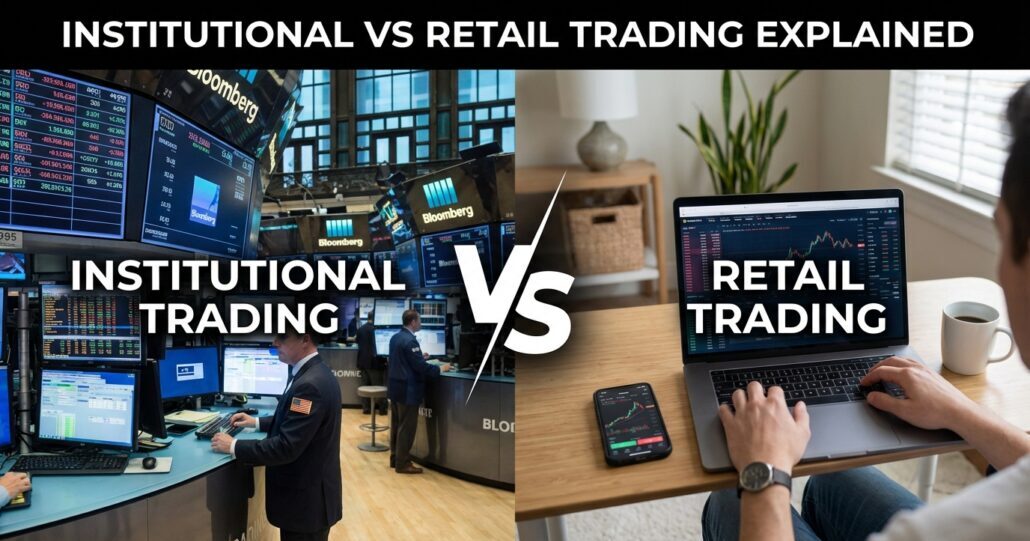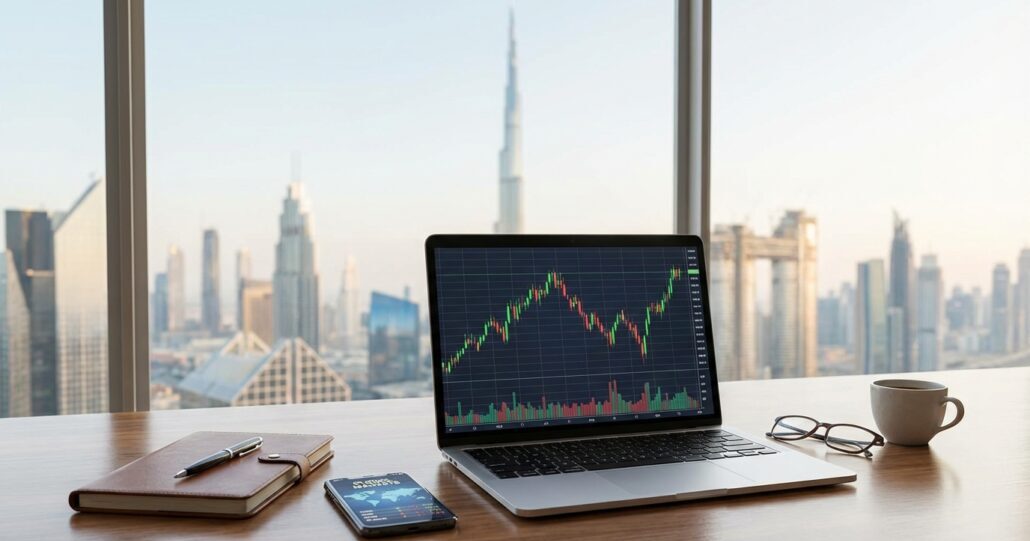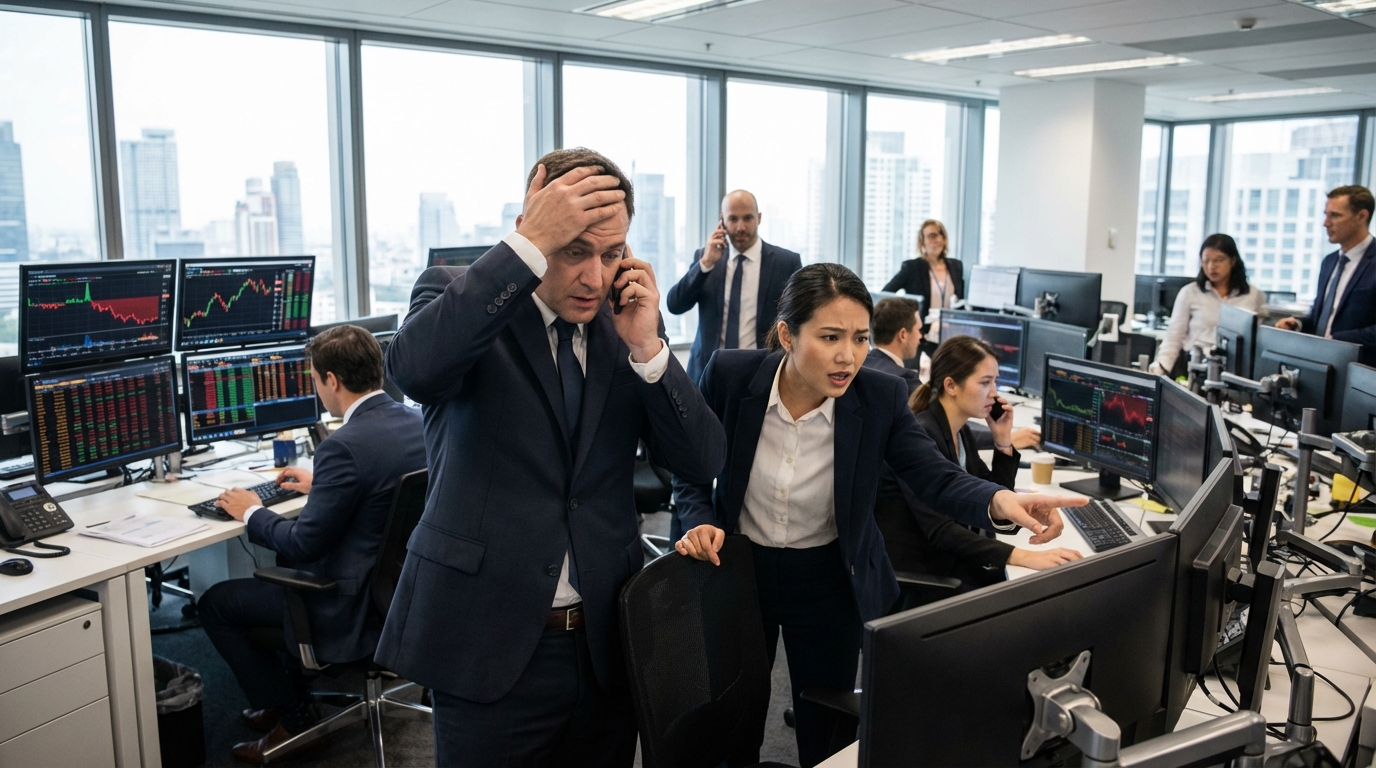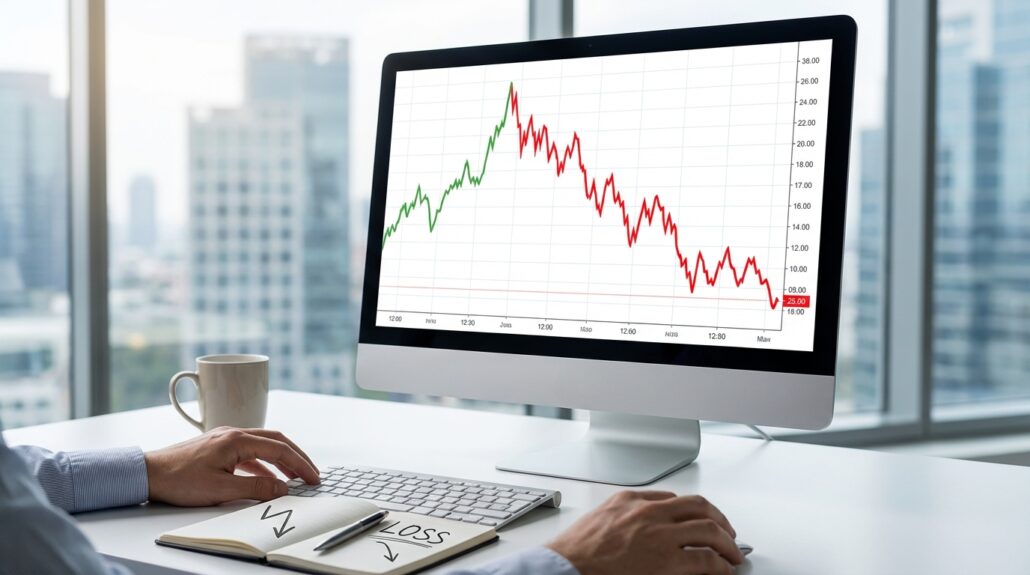How Can I Trade Stocks in the UAE?
 Sam Reid
Staff Writer
Sam Reid
Staff Writer 
If you are asking yourself how can I trade stocks in the UAE, the answer is that you need a licensed broker, an investment or trading account, and a clear strategy. Residents can access local exchanges such as the Dubai Financial Market or Abu Dhabi Securities Exchange through traditional brokers, or they can use international brokers to trade global stocks. The type of broker you choose will determine whether you are truly investing in shares and owning them, or trading price movements through contracts for difference. Both approaches are available in the UAE, and both can be powerful depending on your goals.
Choosing the right online trading broker is the first and most important step. In this guide, we will walk through the details of how UAE residents can start trading, what makes the UAE market unique, and which brokers for stock trading in uae are best for different types of investors and traders.
Why Stocks are Popular in the UAE
The UAE economy has long been associated with oil and real estate, but in recent years stocks have taken center stage as an attractive asset class. Stocks have consistently outperformed traditional savings accounts, government bonds, and even property yields. For example, since 1957, the S&P 500 index benchmark has delivered an average annual return of over 10%, while the highest real estate yields in Dubai were around eight percent and savings accounts offered only 1.75 percent.
Stocks also provide flexibility. With the rise of online trading broker platforms that allow fractional share purchases, a beginner can start with as little as 1000 AED and gain exposure to companies they believe in. Compared to large deposits needed for property or the slow growth of bonds, stocks are often a more dynamic way to grow wealth.

Understanding the UAE Stock Market
The UAE has three main exchanges where shares are listed and traded:
-
Dubai Financial Market (DFM)
Launched in 2000, it lists around 170 securities and requires companies to comply with Sharia principles. Trading takes place Sunday to Thursday. -
Abu Dhabi Securities Exchange (ADX)
Also founded in 2000, ADX is one of the largest exchanges in the region with more than 70 companies listed and a market capitalization of nearly 3 trillion AED. -
Nasdaq Dubai
Offers an international focus, with securities from companies across the Middle East, North Africa, and South Asia.
These markets are regulated by the Securities and Commodities Authority, which ensures that brokers meet strict standards.
At the same time, UAE residents are not limited to local stocks. By using global brokers for stock trading in uae, investors and traders can access international markets such as the New York Stock Exchange or the London Stock Exchange.
Trading vs Investing: The Key Difference
Before choosing a broker, you need to decide whether your goal is investing or trading.
-
Investing means buying shares and owning them. You hold them for months or years, collect dividends, and aim for long term growth. Local brokers such as Emirates NBD Securities or ADSS give you this access.
-
Trading means speculating on price movements without owning the shares. This is done through contracts for difference (CFDs). A broker like Exness allows UAE residents to trade stock CFDs from global markets such as in the US – Apple, Tesla, or Microsoft. You can profit from both rising and falling prices, and you can use leverage, but you do not become a shareholder.
Both options are valid. Investors usually prefer UAE based brokers to build portfolios for the long term, while active traders who want to speculate on global equities often choose platforms like Exness.

Step by Step Guide to Trading Stocks in the UAE
Step 1: Select a Broker
Your choice of broker determines your access.
-
For long term investors: Emirates NBD Securities and ADSS are trusted names. They connect you to DFM and ADX directly.
-
For traders: Exness is one of the most popular choices for UAE residents who want to speculate on global stocks through CFDs.
When choosing, compare regulation, fees, platform usability, and customer support. Always verify that your broker is properly licensed.
Step 2: Open and Verify Your Account
Local brokers require you to apply for a National Investor Number. This number links your identity to the local exchanges. Global brokers like Exness make onboarding simpler, requiring only identity and residence proof.
Step 3: Fund Your Account
Funding can be done in AED or USD. Local brokers allow AED deposits directly, while many international brokers accept multiple currencies and convert automatically.
Step 4: Decide on Investing or Trading
If you want to own shares and receive dividends, invest through a local broker. If you want to trade international companies with leverage, then Exness is your route.
Step 5: Place Orders
There are three main order types to master:
-
Market orders for immediate execution.
-
Limit orders to buy or sell at a target price.
-
Stop orders that trigger trades once a certain price is reached.
Step 6: Monitor and Manage Your Portfolio
Use mobile apps and trading tools to keep track of your positions. Diversify across industries and regions, and always review your risk exposure.
Managing Risk: The 7 Percent Rule
No matter whether you invest directly or trade CFDs, risk management is critical. A widely used guideline is the 7 percent rule. If a stock falls more than seven percent below your purchase price, you sell it to protect your capital. This prevents emotional decision making and helps you preserve funds for future opportunities.
Another common strategy is to take profits once a stock gains between twenty and twenty five percent. These rules are simple but powerful, and many brokers provide tools like stop loss orders to automate them. For example, Exness includes stop loss features in its CFD platform so that traders can control risk automatically.
How to Invest 1000 AED in UAE Stocks
Many beginners wonder if 1000 AED is enough to get started. The answer is yes.
If you are investing, you could open an account with Emirates NBD Securities and buy shares of ADNOC, Etisalat, or Emirates NBD itself. With 1000 AED, you might only purchase a small number of shares, but you would be a shareholder.
If you are trading, you could use Exness to open fractional CFD positions in international companies. With leverage, your 1000 AED could give you exposure to larger positions, but you must remember the risks that come with it.
The choice depends on your goals. Long term wealth building requires investing. Short term speculation with potential for both fast gains and fast losses fits trading.
Why Long Term Investing is Favored by Many
Research has consistently shown that staying invested over the long term reduces risk. In the S&P 500, five year holding periods had a 95 percent chance of profit, while ten year periods were almost certain to be profitable. For UAE investors, this principle holds true. Companies such as Emirates NBD or ADNOC have strong fundamentals that reward patient shareholders.
Trading, on the other hand, appeals to those who enjoy active decision making and want the ability to profit from short term volatility. A broker like Exness suits this approach. Both methods can complement each other. Many UAE residents invest locally for stability while trading international stocks for additional opportunities.

Best Brokers for Stock Trading in the UAE
Here are the main categories of brokers for stock trading in uae:
-
Emirates NBD Securities: A top choice for direct investing in DFM and ADX.
-
ADSS: An Abu Dhabi based broker regulated by the SCA with multi asset trading platforms.
-
Exness: A leading global CFD broker used by UAE residents to trade stock price movements without ownership. Known for flexible accounts and strong risk management tools.
-
Interactive Brokers: Highly regarded for very low fees and wide global access, suitable for experienced traders who want depth of markets.
Key Factors to Consider Before Trading
-
Diversification: Spread across sectors and markets. Never put more than twenty percent of your portfolio in one industry.
-
Risk Tolerance: Match your portfolio to your financial goals and comfort with volatility.
-
Regulation: Confirm your broker is licensed by the Securities and Commodities Authority or another respected authority.
-
Costs: Understand commissions, custody fees, spreads, and conversion charges. Exness and XTB are competitive on costs for active traders.
-
Technology: Use mobile friendly platforms that make monitoring easy wherever you are.
FAQs
Can you trade stocks in the UAE?
Yes, residents can trade directly on DFM, ADX, and Nasdaq Dubai, or use international brokers for global markets. Choosing a regulated online trading broker ensures safe access.
What is the 7 percent rule in stocks?
This rule means selling a stock if it falls seven percent below your entry price, to protect capital and prevent deeper losses.
How to invest 1000 AED in UAE?
You can invest through a local broker to buy shares in UAE companies, or trade global stocks with Exness using CFDs and fractional positions.
Which platform is best for trading in the UAE?
For investing, Emirates NBD Securities and ADSS are strong choices. For trading international companies through CFDs, Exness is one of the most popular brokers among UAE residents.
Final Thoughts
So, how can I trade stocks in the UAE? It starts with choosing the right broker. If you want to own shares, receive dividends, and build a long term portfolio, UAE based brokers such as Emirates NBD Securities or ADSS provide a pathway. If you want to trade global companies with leverage and flexibility, platforms like Exness give you access to stock CFDs.
The UAE is unique in offering both options under a secure regulatory environment. With careful selection of a trusted online trading broker, adherence to trading rules like the seven percent stop loss, and a clear strategy, anyone in the UAE can participate in the stock market. Whether your path is investing or trading, the opportunities are there to take. Always remember to never invest more than you’re comfortable affording.
Disclaimer: Remember that investing and CFD trading involves high risk. Always do your own research and never invest what you cannot afford to lose.
 21st Aug 2025
21st Aug 2025








